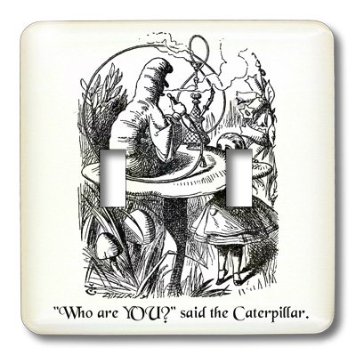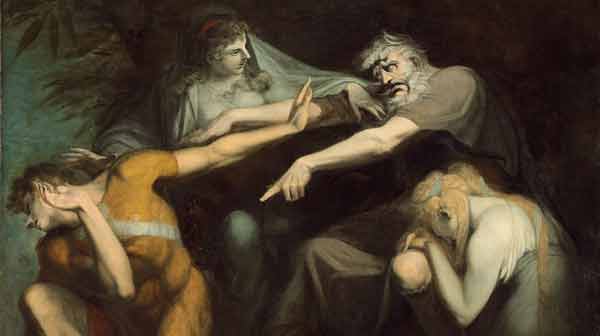 “Who are you?” – the Caterpillar, Alice in Wonderland
“Who are you?” – the Caterpillar, Alice in Wonderland
“And you may ask yourself, Am I right? Or am I wrong? And you may say to yourself, My God! What have I done?!”
– Talking Heads, “Once in a Lifetime”
When most people think of the story of Oedipus, they think of the “Oedipus complex,” the incest, the blinding, the power of fate. But Sophocles’ Oedipus plays, like the Caterpillar’s question and the famous rock song, center around the most basic human issue, one most of us believe to something we understand well: our identity.
Sophocles’ characters start the plays thinking they know who they are and what they are doing. As the plays unfold, however, they ultimately realize that they were mistaken, transforming into people unrecognizable to themselves. Or is that where they started?
In the sci-fi film Imposter based on a short story by Philip K. Dick, the protagonist, Spence, tries to prove his identity to government agents who are hunting him down, convinced he is an alien terrorist about to blow up Earth’s only defenses. Spence knows who he is—he is a husband who loves his wife, he is a scientist who wants to protect the earth from the aliens, he is a good man who tries to save his friends and colleagues even as he tries to prove to them that he really is the man they knew. The story is told from Spence’s perspective, so we know that he really believes he is who he claims to be. But in the end, he is not. Despite his feelings, thoughts, reasons and good intentions, he really is an alien imposter trying to destroy the human race. And he only realizes his true nature as the bomb inside him explodes.
I don’t know if Philip K. Dick had Sophocles’ play in mind, but Oedipus and Spence are cut from the same cloth. Oedipus knows he is a good guy. Everything he does, he does with the intent of helping others or making the situation better. He is someone who relies on his intelligence. He can solve riddles, slay monsters, and rule a kingdom wisely, all because of his cleverness in figuring things out. He is successful, and his city and his family love him. And yet, just like Spence, he ends up corrupting and destroying everything he touches, and his cleverness, fueled by his erroneous self-identity, only draws him deeper into destruction. Every time he tries to fix things, he makes them worse. Is this because he is incorrect about who he is?
Oedipus hits at our greatest fear—what if I’m not really a good guy? What if I am not who I really think I am? What if the person I see in the mirror is who I want to see and not the real me?
In Oedipus’ case, that fear plays out in the most extreme ways, but in our daily lives we all face those same kind of revelations on a smaller scale, and they can be just as shocking. While we might not be concerned about killing our father or marrying our mother, we can identify with Oedipus’ suffering because we fear we might not be who we want to think we are.
Is there a way to resolve this problem? Is there a way to get a better understanding of who we really are?
As we read through and discuss the Oedipus trilogy, we will see some possible solutions, as well as some object lessons. In these plays, there are moments of recognition, horror, and sympathy that show why, after all these years, we still return to them to help us understand ourselves.
You can click on the link to learn more about my seminar, The Fall of the House of Oedipus. I’ll look forward to meeting you at Toronto Pursuits 2016!
– Zoë
Featured image of Sophocles: Son of Groucho on Flickr



